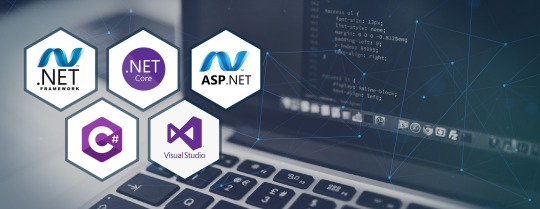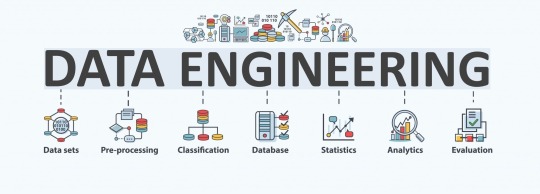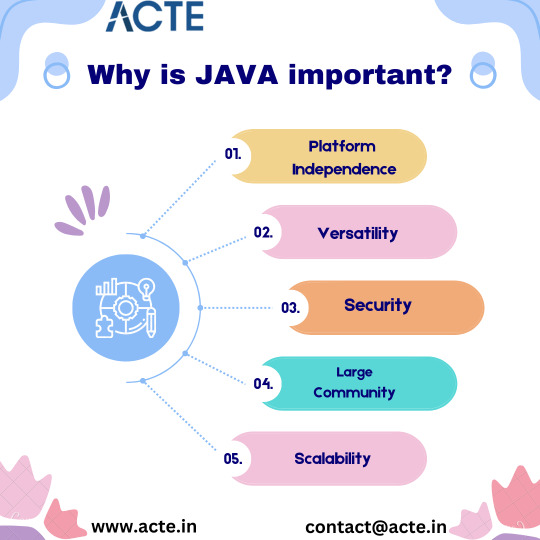#how java is platform independent
Explore tagged Tumblr posts
Text
Best IT Courses In Bhubaneswar:- seeree services pvt ltd.
Introduction:- seeree is one of the best IT training institute and Software industry, features completely Industrial training on Python , PHP , .NET , C Programming,Java , IOT , AI , GD PI , ORACLE and ALL CERTIFICATION COURSES as well as provides seminar,cultural activity and jobs
Courses we provided:- 1) Java Fullstack 2) Python Fullstack 3) PHP Fullstack 4) Preplacement Training & Sp. Eng 5) .NET Fulstack 6) SEO/Digital Marketing 7) SAP 8) MERN 9) Software Testing 10)Data Analyst 11)Data Science 12)Data Engineering 13)PGDCA 14)Tally 15)Graphics Design
Course1:- Java Fullstack

A Class in Java is where we teach objects how to behave. Education at seeree means way to success. The way of teaching by corporate trainers will bloom your career. We have the best java training classes in Bhubaneswar. 100% Placement Support. Job Support Post Training. This course will give you a firm foundation in Java, commonly used programming language. Java technology is wide used currently. Java is a programming language and it is a platform. Hardware or software environment in which a program runs, known as a platform. Since Java has its own Runtime Environment (JRE) and API, it is called platform. Java programming language is designed to meet the challenges of application development in the context of heterogeneous, network-wide distributed environment. Java is an object-oriented programming (OOP) language that uses many common elements from other OOP languages, such as C++. Java is a complete platform for software development. Java is suitable for enterprise large scale applications.]
Course2:- Python Fullstack

Seeree offers best python course in Bhubaneswar with 100% job assurance and low fee. Learn from real time corporate trainers and experienced faculties. Groom your personality with our faculty. Seeree helps to build confidence in students to give exposure to their skills to the company.
Python is dynamically typed , compiled and interpreted , procedural and object oriented , generalized , general-purpose , platform independent programming language. Python is a high-level, structured, open-source programming language that can be used for a wide variety of programming tasks.
Course3:- PHP Fullstack

seeree is the best training institute which provide PHP Training courses in bhubaneswar and all over odisha We aim the students to learn and grow altogether with the need of IT firms.
PHP is a server scripting language, and a powerful tool for making dynamic and interactive Web pages. PHP is a widely-used, free, and efficient alternative to competitors such as Microsoft's ASP.
Course4:- Preplacement Training & Sp. Eng

Welcome to SEEREE Institute, where excellence meets opportunity. At SEEREE, we are dedicated to providing a transformative learning experience that empowers students to achieve their goals and contribute to a brighter future.
Our institute offers cutting-edge courses designed to meet the needs of the ever-evolving global landscape. With a team of highly qualified instructors and state-of-the-art facilities, we ensure a supportive and inspiring environment for learning and growth.
Whether you're here to develop new skills, explore innovative fields, or pursue personal and professional success, SEEREE Institute is the perfect place to begin your journey. Thank you for choosing us, and we look forward to being a part of your success story.
Course5:- .NET Fullstack

Seeree offers best .NET course in Bhubaneswar with 100% job assurance and low fee. Learn from real time corporate trainers and experienced faculties. Groom your personality with our faculty. Seeree helps to build confidence in students to give exposure to their skills to the company.
Course6:- SEO/Digital Marketing

In today's fast-paced digital world, businesses thrive on visibility, engagement, and strategic online presence. At SEEREE, we empower you with the skills and knowledge to master the art of Search Engine Optimization (SEO) and Digital Marketing.
Our comprehensive program is designed for beginners and professionals alike, covering everything from keyword research, on-page and off-page SEO, and content marketing, to social media strategies, PPC campaigns, and analytics.
With hands-on training, real-world projects, and guidance from industry experts, we ensure you're equipped to drive measurable results and excel in this dynamic field.
Join us at SEEREE Institute and take the first step towards becoming a leader in the digital marketing landscape!"
Course7:- SAP

SAP refers to Systems, Applications, and Products in Data Processing. Some of the most common subjects covered in these courses include human resource software administration, database management, and business training. Obtaining SAP certification can be done on a stand-alone basis or as part of a degree program.
Course8:- MERN

Seeree offers the best MERN course in Bhubaneswar with 100% job assurance and low fees. Learn from real-time corporate trainers and experienced faculty. Seeree helps students build confidence and gain skills to excel in company roles.
Are you ready to step into the exciting world of web development? At SEEREE, we bring you a comprehensive MERN Stack course that equips you with the skills to build modern, dynamic, and responsive web applications from start to finish.
The MERN Stack—comprising MongoDB, Express.js, React.js, and Node.js—is one of the most sought-after technologies in the web development industry. Our program is designed to help you master each component of the stack, from creating robust backends and managing databases to crafting dynamic frontends and seamless APIs.
Course9:- Software Testing

Seeree offers best Testing course in Bhubaneswar with 100% job assurance and low fee. Learn from real time corporate trainers and experienced faculties. Groom your personality with our faculty. Seeree helps to build confidence in students to give exposure to their skills to the company.
In the fast-paced world of software development, ensuring the quality and reliability of applications is crucial. At SEEREE, we offer a comprehensive Software Testing course designed to equip you with the skills and techniques needed to excel in this essential field.
Our program covers all aspects of software testing, from manual testing fundamentals to advanced automation tools and frameworks like Selenium, JIRA, and TestNG. You’ll learn to identify bugs, write test cases, execute test scripts, and ensure software meets high-quality standards.
With hands-on training, real-world scenarios, and guidance from experienced industry professionals, you’ll be prepared to take on roles like Quality Assurance Engineer, Test Analyst, and Automation Tester.
Join SEEREE Institute and gain the expertise to become a key player in delivering flawless software solutions. Your journey to a rewarding career in software testing starts here!"
Course10:- Data Analyst

Seeree offers the best Data Analyst course in Bhubaneswar with 100% job assurance and affordable fees. Our comprehensive curriculum is designed to cover all aspects of data analysis, from data collection and cleaning to advanced data visualization techniques. Learn from real-time corporate trainers and experienced faculty members who bring industry insights into the classroom. Enhance your analytical skills and boost your career prospects with hands-on projects and real-world case studies. Our faculty also focuses on grooming your personality and soft skills, ensuring you are well-prepared for interviews and workplace environments. Seeree is dedicated to building confidence in students, providing them with the necessary exposure to showcase their skills to top companies in the industry.
Course11:- Data Science

Seeree offers the best Data Science course in Bhubaneswar with 100% job assurance and affordable fees. Our comprehensive curriculum is designed to cover all aspects of data science, from data collection and cleaning to advanced data visualization techniques. Learn from real-time corporate trainers and experienced faculty members who bring industry insights into the classroom. Enhance your analytical skills and boost your career prospects with hands-on projects and real-world case studies. Our faculty also focuses on grooming your personality and soft skills, ensuring you are well-prepared for interviews and workplace environments. Seeree is dedicated to building confidence in students, providing them with the necessary exposure to showcase their skills to top companies in the industry.
Course12:- Data Engineering

In the era of big data, the ability to design, build, and manage scalable data infrastructure is one of the most in-demand skills in the tech industry. At SEEREE, we are proud to offer a comprehensive Data Engineering course that prepares you for a career at the forefront of data-driven innovation.
Our program covers essential topics such as data modeling, ETL processes, data warehousing, cloud platforms, and tools like Apache Spark, Kafka, and Hadoop. You’ll learn how to collect, organize, and transform raw data into actionable insights, enabling businesses to make smarter decisions.
With real-world projects, expert mentorship, and hands-on experience with the latest technologies, we ensure that you are industry-ready. Whether you’re starting fresh or upskilling, this program will empower you to unlock opportunities in the rapidly growing field of data engineering.
Join SEEREE Institute and take the first step toward building the data pipelines that power tomorrow’s technology!"
Course13:- PGDCA

Seeree offers the best MERN course in Bhubaneswar with 100% job assurance and low fees. Learn from real-time corporate trainers and experienced faculty. Seeree helps students build confidence and gain skills to excel in company roles.
In today’s digital age, computer applications are at the heart of every industry, driving innovation and efficiency. At SEEREE Institute, our Post Graduate Diploma in Computer Applications (PGDCA) program is designed to provide you with in-depth knowledge and hands-on skills to excel in the IT world.
This program offers a comprehensive curriculum covering programming languages, database management, web development, software engineering, networking, and more. Whether you aim to enhance your technical expertise or step into a rewarding career in IT, PGDCA at SEEREE equips you with the tools to succeed.
With expert faculty, state-of-the-art labs, and real-world projects, we ensure that you gain practical experience and a strong theoretical foundation. By the end of the program, you’ll be prepared for roles such as software developer, system analyst, IT manager, or database administrator.
Course14:- Tally

Seeree offers the best Tally course in Bhubaneswar with 100% job assurance and low fees. Learn from real-time corporate trainers and experienced faculty. Seeree helps students build confidence and gain skills to excel in company roles.
In today’s business world, efficient financial management is key to success, and Tally is one of the most trusted tools for accounting and financial operations. At SEEREE Institute, we offer a comprehensive Tally course designed to equip you with the skills needed to manage business finances effortlessly.
Our program covers everything from the basics of accounting and bookkeeping to advanced features like GST compliance, inventory management, payroll processing, and generating financial reports. With hands-on training and real-world applications, you’ll gain practical expertise in using Tally effectively for businesses of any scale.
Whether you're a student, a professional, or a business owner, our Tally program is tailored to meet your needs and enhance your career prospects in the fields of accounting and finance.
Course15:- Graphics Design

In the world of creativity and communication, graphic design plays a vital role in bringing ideas to life. At SEEREE Institute, our Graphic Design course is tailored to help you unlock your creative potential and master the art of visual storytelling.
Our program covers a wide range of topics, including design principles, color theory, typography, branding, and user interface design. You’ll gain hands-on experience with industry-standard tools like Adobe Photoshop, Illustrator, and InDesign, enabling you to create stunning visuals for print, digital media, and beyond.
Whether you're an aspiring designer or a professional looking to sharpen your skills, our expert trainers and real-world projects will provide you with the knowledge and confidence to excel in this competitive field.
Join SEEREE Institute and start your journey toward becoming a skilled graphic designer. Let’s design your future together!"
2 notes
·
View notes
Text
The Importance and Benefits of Learning Java Programming
Hello everyone! If you're considering learning a programming language, let me tell you why Java should be at the top of your list! Java is a versatile language used worldwide in various projects, from computer programs to web development and Android app creation. Learning Java opens up many career opportunities as Java developers are in high demand across industries. For students who want to go into the IT field, java programming helps them to achieve that goal. Java simply helps us to know the difference between Data and Information, and how you use it to make something.

Top 7 Benefits of Learning Java Programming
1- Widely Used Language
2- Simplicity
3- Easy to learn
4- Object-Oriented Programming (OOP)
5- Android App Development
6- Career Growth and Job Opportunities
7- For more points read the full blog
Importance of Learning Java Programming
1- Versatility
2- Career Opportunities
3- Platform Independence
4- Robustness and Reliability
5- Community Support and Resources
Conclusion
Java is like HUB for everything, it can help you to make in development in everything. Java supports setting a UTF universal text format that contains all the languages such as Japanese, English, Chinese, arbi, and more. It contains 65 thousand alphabets which is why Java knows every language. every For more information read our full blog on Learning Java: Importance & Benefits.
3 notes
·
View notes
Text
Java's Lasting Impact: A Deep Dive into Its Wide Range of Applications
Java programming stands as a towering pillar in the world of software development, known for its versatility, robustness, and extensive range of applications. Since its inception, Java has played a pivotal role in shaping the technology landscape. In this comprehensive guide, we will delve into the multifaceted world of Java programming, examining its wide-ranging applications, discussing its significance, and highlighting how ACTE Technologies can be your guiding light in mastering this dynamic language.

The Versatility of Java Programming:
Java programming is synonymous with adaptability. It's a language that transcends boundaries and finds applications across diverse domains. Here are some of the key areas where Java's versatility shines:
1. Web Development: Java has long been a favorite choice for web developers. Robust and scalable, it powers dynamic web applications, allowing developers to create interactive and feature-rich websites. Java-based web frameworks like Spring and JavaServer Faces (JSF) simplify the development of complex web applications.
2. Mobile App Development: The most widely used mobile operating system in the world, Android, mainly relies on Java for app development. Java's "write once, run anywhere" capability makes it an ideal choice for creating Android applications that run seamlessly on a wide range of devices.
3. Desktop Applications: Java's Swing and JavaFX libraries enable developers to craft cross-platform desktop applications with sophisticated graphical user interfaces (GUIs). This cross-platform compatibility ensures that your applications work on Windows, macOS, and Linux.
4. Enterprise Software: Java's strengths in scalability, security, and performance make it a preferred choice for developing enterprise-level applications. Customer Relationship Management (CRM) systems, Enterprise Resource Planning (ERP) software, and supply chain management solutions often rely on Java to deliver reliability and efficiency.
5. Game Development: Java isn't limited to business applications; it's also a contender in the world of gaming. Game developers use Java, along with libraries like LibGDX, to create both 2D and 3D games. The language's versatility allows game developers to target various platforms.
6. Big Data and Analytics: Java plays a significant role in the big data ecosystem. Popular frameworks like Apache Hadoop and Apache Spark utilize Java for processing and analyzing massive datasets. Its performance capabilities make it a natural fit for data-intensive tasks.
7. Internet of Things (IoT): Java's ability to run on embedded devices positions it well for IoT development. It is used to build applications for smart homes, wearable devices, and industrial automation systems, connecting the physical world to the digital realm.
8. Scientific and Research Applications: In scientific computing and research projects, Java's performance and libraries for data analysis make it a valuable tool. Researchers leverage Java to process and analyze data, simulate complex systems, and conduct experiments.
9. Cloud Computing: Java is a popular choice for building cloud-native applications and microservices. It is compatible with cloud platforms such as AWS, Azure, and Google Cloud, making it integral to cloud computing's growth.

Why Java Programming Matters:
Java programming's enduring significance in the tech industry can be attributed to several compelling reasons:
Platform Independence: Java's "write once, run anywhere" philosophy allows code to be executed on different platforms without modification. This portability enhances its versatility and cost-effectiveness.
Strong Ecosystem: Java boasts a rich ecosystem of libraries, frameworks, and tools that expedite development and provide solutions to a wide range of challenges. Developers can leverage these resources to streamline their projects.
Security: Java places a strong emphasis on security. Features like sandboxing and automatic memory management enhance the language's security profile, making it a reliable choice for building secure applications.
Community Support: Java enjoys the support of a vibrant and dedicated community of developers. This community actively contributes to its growth, ensuring that Java remains relevant, up-to-date, and in line with industry trends.
Job Opportunities: Proficiency in Java programming opens doors to a myriad of job opportunities in software development. It's a skill that is in high demand, making it a valuable asset in the tech job market.
Java programming is a dynamic and versatile language that finds applications in web and mobile development, enterprise software, IoT, big data, cloud computing, and much more. Its enduring relevance and the multitude of opportunities it offers in the tech industry make it a valuable asset in a developer's toolkit.
As you embark on your journey to master Java programming, consider ACTE Technologies as your trusted partner. Their comprehensive training programs, expert guidance, and hands-on experiences will equip you with the skills and knowledge needed to excel in the world of Java development.
Unlock the full potential of Java programming and propel your career to new heights with ACTE Technologies. Whether you're a novice or an experienced developer, there's always more to discover in the world of Java. Start your training journey today and be at the forefront of innovation and technology with Java programming.
8 notes
·
View notes
Text
Unleashing the Power of Java: Your Guide to a Versatile Programming Language
Java: The Language of Digital Choreography
Programming languages are like the words we use to communicate with computers, and among these languages, Java stands out as a versatile and powerful tool. Imagine it as teaching your computer to dance to your tune, where your instructions are written in Java. But what makes Java so special, and why is it so widely embraced in the world of programming? Let's dive into the key reasons behind its importance.

1. Platform Independence: Java's Superpower
Java possesses a superpower—it can run on various computer systems without requiring modifications. How? Java programs are transformed into bytecode, a universal language understood by the Java Virtual Machine (JVM). This bytecode runs seamlessly on Windows, Mac, or Linux, making Java truly platform-independent.
2. Versatility: The Swiss Army Knife of Programming
Java is like a Swiss Army knife for programmers. It's not limited to one domain; you can use it to craft web applications, mobile apps, desktop software, and even embed it in small devices like smart thermostats. Its adaptability knows no bounds.
3. Security: A Robust Guardian
In an age where digital security is paramount, Java takes security seriously. It boasts built-in features that safeguard your computer and data from malicious software, providing peace of mind in our increasingly interconnected world.
4. Large Community: Your Support Network
The vast Java community is a valuable resource. With a multitude of Java developers out there, you can easily find help, access resources, and leverage libraries. If you encounter a coding challenge, chances are someone else has faced it and shared a solution.
5. Scalability: From Small to Massive
Java scales effortlessly. It's trusted by major corporations to power their colossal systems. Whether you're creating a small game or launching a massive e-commerce platform, Java can handle the challenge.

The Java Odyssey: Transforming Code into Digital Life
Understanding the inner workings of Java is paramount in the realm of programming. It unfolds as an intricate journey, a symphony of steps that bring your code to life, transforming instructions into digital ballet. Let’s delve deeper into this process:
1. Composition of Code: The Birth of Instructions
The journey commences with the composer, the programmer, crafting Java code that resonates with human understanding. It’s akin to writing the script for a grand performance, where every line of code becomes a note in the symphony of instructions.
2. Compilation: The Translator’s Artistry
Your code embarks on a transformative voyage known as compilation. This step resembles a skilled translator rendering a literary masterpiece into a universal language. The code metamorphoses into bytecode, a linguistic bridge that computers understand.
3. Bytecode: The Choreographer’s Notation
Bytecode emerges as the choreographer’s notation — a graceful set of instructions, akin to dance moves meticulously notated on a score. The Java Virtual Machine (JVM) is the dance floor, and bytecode is the choreographic masterpiece. It is platform-agnostic, a language that speaks fluently on any stage where a JVM is present.
4. Execution: The Grand Performance
The Java Virtual Machine takes center stage, assuming the role of the conductor and principal dancer. It orchestrates the grand performance by executing the bytecode on the target computer. This is where your program comes to life, faithfully translating your meticulously crafted instructions into tangible actions.
The Call to Adventure: Java Awaits
Now, are you ready to embark on the captivating adventure of Java? It beckons with the promise of exploring boundless possibilities and orchestrating digital feats. Java’s prowess extends across a myriad of applications, underpinned by its platform independence, fortified security, and the unwavering support of a vibrant community. If you harbor the eagerness to communicate with computers and guide them to perform incredible acts, Java stands as the perfect threshold.
Java is your gateway to a world where code transforms into enchanting performances, where the mundane becomes extraordinary. It is here that your journey unfolds, a journey of endless creativity and digital choreography that awaits your creative touch. Step onto the Java stage, and let your programming odyssey commence.
For those looking to deepen their understanding of Java, we strongly recommend exploring ACTE Technologies. Their qualified instructors can significantly enhance your learning journey, offering certificates and career placement opportunities. Whether you prefer online or offline access, ACTE Technologies provides a wealth of resources to help you master Java. Consider enrolling in one of their courses to embark on a step-by-step learning adventure.
#javacourse#javascript#javadevelopmentcompany#javaprogramming#javaprojects#best java developer jobs#best java training
4 notes
·
View notes
Text
Java Interview Questions and Answers: Your Ultimate Preparation Guide

That’s why we’ve created "Java Interview Questions and Answers: Your Ultimate Preparation Guide" to help you get fully prepared and stand out from the competition.
Java remains one of the most widely used programming languages across the tech industry. From building enterprise-grade applications to Android development and cloud-based systems, Java is a powerful, object-oriented language that has stood the test of time. As a result, Java continues to be a core requirement in thousands of job listings globally, and technical interviews often focus heavily on Java fundamentals, coding practices, and real-world problem-solving.
This guide offers a comprehensive breakdown of the most commonly asked Java interview questions, along with expert-level answers that explain not just the what, but the why—helping you build a strong conceptual foundation.
Why This Guide Matters
"Java Interview Questions and Answers: Your Ultimate Preparation Guide" is designed to equip you with the most relevant, up-to-date, and frequently asked questions across various job roles and experience levels. Whether you're a fresher just entering the field or a seasoned Java developer with years of experience, the questions included in this guide cover all the core areas expected in a Java interview.
With structured answers, real-world examples, and technical explanations, this guide helps you understand each topic in depth—so you’re not just memorizing, but truly learning.
Key Topics Covered in This Guide
Here are the primary categories of Java interview questions and answers covered in this ultimate preparation guide:
1. Core Java Basics
These questions test your fundamental knowledge of Java, including syntax, control structures, and data types. Examples include:
What are the main features of Java?
What is the difference between JDK, JRE, and JVM?
Explain the concept of platform independence in Java.
2. Object-Oriented Programming (OOP) in Java
As Java is built around the OOP paradigm, interviewers often assess your grasp of these principles:
What is encapsulation, and why is it important?
Explain inheritance with examples.
What is polymorphism, and how is it implemented in Java?
3. Exception Handling
Proper exception handling is critical in robust Java applications. Common questions include:
What is the difference between checked and unchecked exceptions?
How do try, catch, finally, and throw work together?
What is the purpose of custom exceptions?
4. Collections Framework
This is a favorite topic in Java interviews due to its practical importance:
What is the difference between ArrayList and LinkedList?
How does HashMap work internally?
What are the differences between Set, List, and Map?
5. Multithreading and Concurrency
Java supports concurrent programming, and questions in this category test your knowledge of threading concepts:
What is a thread in Java?
Explain the differences between Runnable and Thread.
How do you avoid thread-safety issues in Java applications?
6. Java 8 and Beyond
Modern Java versions introduced features like lambdas, streams, and functional programming:
What are lambda expressions?
How do you use the Stream API in Java 8?
What is the difference between Optional and null?
7. JVM Internals and Memory Management
Senior-level candidates are often expected to understand how Java works under the hood:
How does garbage collection work in Java?
What are the different memory areas in JVM?
How can memory leaks be detected and avoided?
8. Design Patterns and Best Practices
To demonstrate architectural thinking, candidates may be asked:
What is the Singleton pattern and how do you implement it?
Explain the Factory and Observer patterns.
What are SOLID principles in Java programming?
Sample Questions from the Guide
Here are a few samples from "Java Interview Questions and Answers: Your Ultimate Preparation Guide":
1: What is the difference between ‘==’ and .equals() in Java? Ans: == checks reference equality, meaning whether two references point to the same object. .equals() checks logical equality, meaning whether two objects have the same value. For example, two different String objects with the same value will return true using .equals() but false using ==.
2: What is a HashMap, and how does it work internally? Ans: A HashMap stores key-value pairs. It uses a hash function to compute an index where the value should be stored in an array. If multiple keys hash to the same index, Java handles collisions using a linked list or a balanced tree (as of Java 8).
3: How does Java achieve platform independence? Ans: Java code is compiled into bytecode by the Java compiler. This bytecode is platform-independent and can be executed by the Java Virtual Machine (JVM), which is available on multiple operating systems.
How to Use This Guide for Effective Interview Prep
To get the most out of "Java Interview Questions and Answers: Your Ultimate Preparation Guide", follow these steps:
Study the concepts – Don’t just read the answers; understand the reasoning behind them.
Practice coding – Use platforms like HackerRank, LeetCode, or Codeforces to apply Java in real coding problems.
Mock interviews – Simulate real interview scenarios with peers or mentors to practice verbalizing your thoughts.
Build small projects – Implement real-world solutions to solidify your understanding of Java concepts.
Keep learning – Stay up-to-date with Java updates and community discussions to stay ahead of the curve.
Conclusion
Preparation is key to succeeding in a Java interview, and "Java Interview Questions and Answers: Your Ultimate Preparation Guide" is your all-in-one resource for that journey. By mastering the topics covered in this guide, you'll gain the confidence and knowledge needed to impress your interviewers and secure your desired role in the tech industry.
0 notes
Text
Fuel Your Coding Journey with Full Stack Development Mastery
In today’s fast-paced digital world, technology is evolving rapidly—and so are the demands for skilled developers who can build, optimize, and maintain both the front-end and back-end of web applications. This is where full stack development enters the spotlight. If you’re aspiring to become a well-rounded developer, it’s time to fuel your coding journey with full stack development mastery.
Mastering full stack development opens doors to a variety of career paths in software engineering, product development, and tech entrepreneurship. Whether you're a beginner or an experienced programmer, choosing the right training institute plays a crucial role in shaping your future.
What is Full Stack Development?
Full stack development refers to the ability to work on both the client-side (frontend) and server-side (backend) of web applications. A full stack developer is a versatile professional capable of building complete, functional, and scalable digital products.
The core components of full stack development include:
Frontend Technologies: HTML, CSS, JavaScript, React, Angular
Backend Technologies: Java, Node.js, Python, PHP
Databases: MySQL, MongoDB, PostgreSQL
Version Control Systems: Git, GitHub
Deployment & DevOps: Docker, Jenkins, AWS
A comprehensive understanding of these technologies allows developers to create seamless and user-friendly applications from start to finish.
Why Choose Full Stack as a Career?
The demand for full stack developers continues to grow as companies seek professionals who can manage complete project lifecycles. Here are some compelling reasons to fuel your coding journey with full stack development mastery:
Versatility: Ability to work on multiple layers of technology.
High Demand: Recruiters prefer candidates who can take ownership of both backend and frontend tasks.
Lucrative Salaries: Skilled full stack developers command competitive compensation.
Entrepreneurial Edge: Perfect skillset for launching tech startups or freelance projects.
Job Security: Wide range of industries need full stack expertise, from fintech to healthcare.
How to Start Your Full Stack Development Journey?
The first step is choosing the best full stack development training institute in Pune or your local area. Pune, being a rising IT hub, is home to several reputed institutes offering hands-on training with real-world projects.
A quality training institute should offer:
Practical Learning: Focus on live projects and real-time development.
Experienced Faculty: Mentors with real industry experience.
Career Support: Resume building, interview prep, and placement assistance.
Certifications: Industry-recognized credentials that enhance your profile.
Why Java is Still Relevant in Full Stack?
Even though newer technologies are emerging, Java continues to be a cornerstone in enterprise-level development. It is stable, secure, and widely used in backend systems.
If you’re starting from scratch or looking to strengthen your backend development skills, enrolling in a Java training institute in Pune can be a great foundation. Java-based frameworks like Spring Boot and Hibernate are still highly in demand in full stack job roles.
Benefits of Learning Java for Full Stack Development:
Robust and platform-independent.
Easy integration with front-end frameworks.
Strong community support and libraries.
Powerful tools for backend development.
What Makes Pune a Learning Hotspot?
Pune has emerged as a favorite destination for aspiring developers due to its balance of affordable education and booming tech industry. With the presence of numerous MNCs and startups, Pune provides a dynamic environment for learners.
When looking for the best full stack development training institute in Pune, make sure the institute provides:
Updated curriculum aligned with industry needs.
Mentorship from software architects and engineers.
Job placement records and success stories.
Internship opportunities with local IT firms.
Features to Look for in a Full Stack Course
Before enrolling, ensure the course offers:
Complete Stack Coverage: HTML5, CSS3, Bootstrap, JavaScript, React, Node.js, Express.js, MongoDB/MySQL, Git.
Project-Based Learning: Build projects like e-commerce platforms, dashboards, or portfolio websites.
Interactive Classes: Regular assessments, code reviews, and Q&A sessions.
Capstone Projects: Opportunity to showcase your skills through a final project.
Kickstart Your Journey Today
Whether you’re passionate about building web apps or aiming for a career switch, full stack development is the ideal launchpad. It equips you with everything you need to stand out in today’s competitive job market.
Remember, the right mentorship can make all the difference. Seek out a Java training institute in Pune that also offers full stack development programs. Or better, opt for the best full stack development training institute in Pune that gives you exposure to multiple technologies, industry insights, and placement opportunities.
Final Thoughts
It’s not just about learning to code; it’s about transforming the way you think and create digital solutions. When you fuel your coding journey with full stack development mastery, you equip yourself with tools and knowledge that go beyond theory.
Take the leap. Choose the right course. Surround yourself with the right mentors. And soon, you’ll not just be coding—you’ll be building, innovating, and leading the digital future.
0 notes
Text
Crack the Code: Why Learning Java Is Still One of the Smartest Career Moves in 2025
In a world of constantly changing tech trends—where Python, Kotlin, and JavaScript dominate discussions—Java continues to stand strong. And if you're a student or fresher looking to enter the tech industry, learning Java might just be your smartest investment yet.
Why? Because Java is everywhere. From Android apps to enterprise systems, banking software to back-end platforms—Java powers millions of applications used daily. And the demand for skilled Java developers isn't just staying steady; it's growing.
In 2025, Java remains a gateway to building a robust, long-lasting career in software development. And thanks to platforms like Beep, students now have access to hands-on, Java programming courses for beginners that are affordable, practical, and job-oriented.
Why Java Still Rules the Backend World
Some people wrongly assume Java is “old school.” But ask any senior developer, and you’ll hear the same thing: Java is battle-tested, secure, and versatile.
Here’s why companies continue to prefer Java:
Scalability: Perfect for high-traffic apps and large databases
Platform independence: “Write once, run anywhere” is still relevant
Community support: Millions of developers worldwide
Enterprise adoption: Banks, telecoms, logistics firms, and even startups love Java’s stability
Whether you're building a mobile app or designing a cloud-based ERP, Java offers the tools to scale and succeed.
What Makes Java Perfect for Beginners
You don’t need to be an expert to start with Java. In fact, many colleges use Java as a foundation for teaching object-oriented programming (OOP).
As a beginner, you’ll gain core skills that apply across languages:
Variables, data types, control structures
Classes, objects, inheritance, polymorphism
File handling, exception management
Basic UI development using JavaFX or Swing
Introduction to frameworks like Spring (as you advance)
This foundation makes it easier to switch to more specialized stacks later (like Android or Spring Boot) or even pick up other languages like Python or C#.
Where to Start Learning Java the Right Way
While YouTube and free tutorials are good for browsing, structured learning is better for job-readiness. That’s why Beep offers a beginner-friendly Java programming course that’s designed specifically for students and freshers.
What makes this course ideal:
It covers both basic and intermediate concepts
You build real-world projects along the way
You learn how Java is used in interviews and job scenarios
You get certified upon completion—great for your resume
It’s flexible and can be completed alongside college or internship schedules
And if you’re aiming for backend developer jobs, this certification is a strong step in the right direction.
How Java Helps You Land Jobs Faster
Hiring managers love candidates who know Java for one simple reason—it’s practical.
Java-trained freshers can apply for roles like:
Junior Software Developer
Backend Developer
QA Engineer (Automation Testing)
Android App Developer
Support Engineer (Java-based systems)
These roles often mention Java and SQL as core requirements, making it easier for you to stand out if you’ve completed a course and built some small projects.
Explore the latest jobs for freshers in India on Beep that list Java among the top preferred skills.
Build Projects, Not Just Skills
To truly master Java—and get noticed—you need to build and share your work. Here are some beginner-friendly project ideas:
Student registration portal
Simple inventory management system
Expense tracker
Quiz game using JavaFX
File encryption/decryption tool
Host these on GitHub and add them to your resume. Recruiters love seeing what you’ve created, not just what you’ve studied.
What About Java vs. Python?
This is a common question among freshers: Should I learn Java or Python?
The answer: learn based on your goals.
Want to work in data science or AI? Python is ideal.
Want to build robust applications, Android apps, or work in enterprise systems? Java is your best bet.
Also, once you understand Java, learning Python becomes easier. So why not start with the tougher but more rewarding path?
How to Prepare for Java Interviews
Once you’ve got the basics down and completed a project or two, start preparing for interviews with:
Practice problems on platforms like LeetCode or HackerRank
Study key Java topics: Collections, OOP principles, exception handling
Learn basic SQL (many Java jobs also require DB interaction)
Brush up on scenario-based questions
You can also check out Beep’s resources for interview prep alongside your course content.
Final Thoughts: Learn Once, Earn Always
Learning Java isn’t just about getting your first job—it’s about building a lifelong skill. Java has been around for over two decades, and it’s not going anywhere. From web to mobile to enterprise, Java developers are always in demand.
So if you're ready to start your tech journey, don't chase trends. Build a solid base. Start with the best Java course for beginners, practice consistently, and apply with confidence. Because a well-written Java application—and resume—can open more doors than you think.
0 notes
Text
Top Programming Languages to Learn During BCA
The Bachelor of Computer Applications (BCA) is more than just a degree—it's your launchpad into the world of technology. If you're pursuing or planning to pursue BCA, you’re already on a smart path. But to truly stand out in today’s competitive tech landscape, knowing the right programming languages can make all the difference.

Let’s explore some of the must-learn programming languages during your BCA journey, whether you're in your first year or looking to skill up before placements.
1. Python – The Beginner's Best Friend
Python is often the first language taught at most reputed computer colleges for a reason—it's simple, powerful, and versatile. From web development to data science and artificial intelligence, Python is everywhere.
Why learn it? Easy syntax, huge community, tons of real-world applications.
Where it's used: AI, machine learning, automation, web apps.
Most tech-savvy campuses ensure students get hands-on Python experience in their early semesters.
2. Java – For Building Real-World Applications
Java is a classic language that powers countless enterprise applications and Android apps. Many universities emphasize Java due to its strong presence in the job market.
Why learn it? Object-oriented, platform-independent, in-demand.
Where it's used: Mobile development, banking software, web backends.
Students from institutions with a strong industry connection often get early exposure to Java through internships and live projects.
3. C and C++ – The Foundations of Programming
These are the languages where programming really began. While they might seem old-school, understanding C and C++ helps you think like a programmer and understand how computers work at a deeper level.
Why learn it? Improves logic building, system-level understanding.
Where it's used: Game development, operating systems, embedded systems.
Colleges that focus on building a strong technical foundation often introduce these languages early on.
4. JavaScript – The Language of the Web
If you're interested in web development, JavaScript is a must. It brings websites to life and is a key part of the front-end development trio: HTML, CSS, and JS.
Why learn it? Essential for web development, huge job market.
Where it's used: Websites, mobile apps (using frameworks like React Native).
In tech-forward academic environments, students often work on real-time web development projects that include JavaScript and modern frameworks.
5. SQL – The Language of Databases
Every software uses data. And SQL is the tool used to store, access, and manage that data. Whether you become a developer, analyst, or data scientist, SQL will be part of your toolkit.
Why learn it? Crucial for handling data, required in many job roles.
Where it's used: Databases, data analysis, backend development.
Educational institutions that prepare students for tech industry roles make sure database management is a part of the curriculum.
6. PHP – Still Relevant in Web Development
Despite newer frameworks, PHP remains a popular language for server-side web development, especially for content-heavy websites.
Why learn it? Widely used for building dynamic websites.
Where it's used: Web development, CMS (like WordPress).
Campuses offering full-stack development exposure often include PHP in their training.
Bonus Tip: Learn Version Control (Git)
While it’s not a programming language, knowing Git and GitHub will help you collaborate better, especially during internships or team projects.
Conclusion
Choosing the right programming languages to learn during BCA can open many doors. From academic excellence to career opportunities, mastering languages like Python, Java, and SQL can give you a strong edge.
And remember, the environment you study in also matters. Learning these languages becomes easier and more effective when you're surrounded by experienced mentors, real-world projects, and industry exposure. That’s why many students prefer institutions known for strong computer science programs and tech-focused learning. Some of the most dynamic campuses are located in educational hubs like Bangalore, where the blend of academia and industry gives students a clear advantage.
So, start learning, stay consistent, and by the time you finish your BCA, you'll be more than just job-ready—you’ll be future-ready.
0 notes
Text
Unlock Your Programming Potential with the 2025 Core JAVA Bootcamp from Zero to Hero!!

If you’ve ever felt that learning to code in Java was too intimidating or just didn’t know where to begin, we’ve got good news. There’s now a clear, exciting, and structured path to mastering one of the world’s most in-demand programming languages — and you don’t need a tech degree to get started.
Whether you’re looking to launch a career in software development, build Android apps, or simply learn how programming works, the 2025 Core JAVA Bootcamp from Zero to Hero !! is your perfect launchpad.
Let’s explore what makes this bootcamp your best bet for mastering Java and transforming your tech journey in 2025.
Why Java? Why Now?
Java is everywhere. From enterprise software powering Fortune 500 companies to Android apps on billions of devices, Java remains a foundational technology across industries. It’s trusted, flexible, and incredibly versatile.
Still not convinced? Here are a few compelling reasons to dive into Java in 2025:
High Demand for Java Developers: Companies around the globe continue to seek skilled Java developers for both backend and full-stack roles.
Strong Earning Potential: Java developers are among the top-paid software engineers globally.
Massive Community Support: With millions of Java developers worldwide, help is always a click away.
Platform Independence: Java runs on everything from laptops to game consoles, thanks to its “write once, run anywhere” design.
Learning Java in 2025 isn’t just relevant — it’s a smart career move.
What Makes the 2025 Core JAVA Bootcamp Stand Out?
Let’s be real. There are thousands of Java tutorials floating around. Some are outdated. Some are too basic. Others are too complex. What you need is a structured, well-paced, hands-on course that takes you from zero to hero — without the fluff.
That’s where the 2025 Core JAVA Bootcamp from Zero to Hero !! shines.
Here’s why:
✅ Beginner-Friendly Start
This bootcamp assumes no prior coding experience. You’ll start from the very basics — understanding what Java is, how to install it, and writing your very first “Hello World” program.
✅ Hands-On Projects
Theory is good. Practice is better. This bootcamp is packed with real-world mini-projects and coding challenges that help cement every concept.
✅ Up-to-Date Curriculum
Java evolves — and so does this course. The curriculum is aligned with the latest industry practices, including updates for Java 17 and beyond.
✅ Learn at Your Own Pace
Whether you’re a busy professional, student, or a stay-at-home parent making a career switch, the course fits your schedule. You control the pace.
✅ Lifetime Access
Once you enroll, you get lifetime access, meaning you can revisit lessons anytime — especially helpful during job interviews or future projects.
What You’ll Learn Inside the Bootcamp
Here's a peek into what you'll master during the bootcamp:
Java Basics: Data types, variables, operators, and control flow
Object-Oriented Programming: Classes, objects, inheritance, polymorphism, encapsulation, and abstraction
Error Handling: Try-catch blocks, custom exceptions, and debugging tips
Collections Framework: Lists, Sets, Maps, and the power of generics
File I/O and Streams: Reading and writing data like a pro
Multithreading: Understand concurrency and build efficient applications
Java 8+ Features: Lambda expressions, streams API, and functional programming
Simple Game Development: Put theory into practice with a beginner-friendly game project
Database Connectivity (JDBC): Connecting Java apps with MySQL databases
Mini Projects: Including a calculator app, to-do list, contact manager, and more
The 2025 Core JAVA Bootcamp from Zero to Hero !! takes you from baby steps to building your own Java applications — confidently and independently.
Who Should Take This Course?
This bootcamp is designed with clarity and community in mind. You’ll feel guided, supported, and empowered no matter your background.
It’s perfect for:
📌 Absolute beginners with no programming experience
📌 College students looking to level up their skills
📌 Working professionals exploring a career in software development
📌 Aspiring Android developers
📌 Anyone who wants to build a solid foundation in Java
Benefits Beyond the Code
Here’s the thing — it’s not just about learning Java. It’s about building confidence, opening career doors, and future-proofing your skill set.
✅ Boost Your Resume
Adding Java and project work to your portfolio makes you instantly more attractive to employers. You'll not only speak their language — you’ll code in it.
✅ Prep for Interviews
The bootcamp covers essential Java topics often asked in coding interviews. You’ll be better prepared for technical rounds, coding challenges, and whiteboard sessions.
✅ Launch Freelance Work
Once you complete the course, you’ll be ready to take on small Java projects — offering your services on freelance platforms or building your own apps.
Success Stories from Previous Students
Past learners of this course have gone on to land developer jobs, crack interviews at top tech firms, and even start their own freelance businesses.
Here’s what students are saying:
“I came from a non-technical background, but this course made learning Java surprisingly easy. The examples were practical, and I now feel confident enough to apply for Java developer roles.” — Riya M.
“The project-based approach really helped. I didn’t just watch videos — I built things, and that’s what made the knowledge stick.” — Daniel T.
You could be the next success story.
Learning Java in 2025: The Right Time Is Now
There’s never been a better time to start learning Java:
🚀 The job market is booming for Java developers 📈 Companies are seeking scalable, backend solutions — and Java is the answer 🤖 Technologies like machine learning, big data, and enterprise cloud still lean on Java-based solutions
Whether you’re learning for fun, career growth, or personal satisfaction — the 2025 Core JAVA Bootcamp from Zero to Hero !! has the roadmap to take you there.
What You’ll Need to Get Started
Nothing fancy. Just:
A laptop or desktop
Internet connection
A curious mind
A willingness to learn and practice
You don’t need any prior programming experience — just a desire to grow and an hour or two each day to dedicate to learning.
Let’s Talk About Certification
On completion, you’ll receive a certificate that you can showcase on LinkedIn, your resume, or even frame on your wall.
While certification is just one part of the equation, it’s a great way to validate your skills — especially when applying for jobs or bidding on freelance gigs.
What’s the Investment?
Here’s the best part — you don’t need to spend thousands of dollars or attend a coding bootcamp in-person.
You get access to all this learning — plus future updates, support, and community — at a fraction of the cost.
And remember: it’s not just an expense, it’s an investment in your future.
Final Thoughts: You’re Closer Than You Think
Learning to code in Java doesn’t have to be confusing or frustrating. With the right course, guidance, and practice, anyone can learn — including you.
The 2025 Core JAVA Bootcamp from Zero to Hero !! breaks it down into digestible lessons, real-life projects, and fun challenges — making it easy and enjoyable to stay motivated and on track.
So if you’re ready to finally conquer Java and take a big step toward your tech career or passion project, this is your moment.
👉 Start your journey from Zero to Hero today.
0 notes
Text
Java Cloud Development Service Provider in India
Looking for a reliable Java cloud development service provider in India? Associative in Pune offers expert Java and cloud integration using Spring Boot, AWS, and GCP for scalable enterprise solutions.
Empowering Businesses with Java Cloud Development in India
In today’s digital-first world, businesses are rapidly adopting cloud-based solutions for flexibility, speed, and scale. If you're searching for a trusted Java cloud development service provider in India, your search ends with Associative, a leading software company based in Pune.
At Associative, we combine the power of Java, Spring Boot, and Oracle with modern cloud platforms like Amazon Web Services (AWS) and Google Cloud Platform (GCP) to deliver high-performance, scalable, and secure applications tailored to your business needs.

Why Choose Java for Cloud Development?
Java remains one of the most robust and versatile programming languages in the software world. When integrated with cloud computing, it enables:
High scalability and performance
Seamless microservices architecture
Secure enterprise-grade solutions
Platform-independent deployment
Rapid development and easy maintenance
With frameworks like Spring Boot, Java makes cloud-native application development faster and more efficient than ever.
Associative – Your Trusted Java Cloud Partner
As a full-service IT company, Associative brings deep expertise in both Java technologies and cloud infrastructure. We design and deploy applications that are:
Cloud-native and highly scalable
Built using Java, Spring Boot, and RESTful APIs
Deployed on AWS or GCP for optimal uptime and cost-efficiency
Designed with future-ready microservices architecture
Whether you're building a new cloud-based solution or migrating legacy systems, our team ensures a smooth and seamless transformation journey.
Our Java Cloud Development Services Include:
Java Spring Boot app development
Cloud-native application architecture
API development & integration
Legacy system modernization
AWS and GCP deployment
CI/CD & DevOps integration
Ongoing cloud maintenance and support
Industries We Serve
From e-commerce and fintech to education, gaming, and healthcare, we cater to a wide range of industries with tailor-made Java cloud solutions.
Why Businesses in India and Worldwide Trust Associative
Apart from Java and cloud development, we also offer a diverse range of services, including:
Mobile app development (Android/iOS)
Web and eCommerce solutions
CMS and LMS development (WordPress, Magento, Moodle)
Node.js, React.js, Laravel, and Flutter
Web3, blockchain, game development, and digital marketing
With a strong foundation in technology and a customer-first mindset, we ensure every solution we deliver brings measurable growth to your business.
Let’s Build the Future Together
At Associative, we don’t just write code – we build cloud-powered Java solutions that help businesses thrive. Ready to take your software to the next level?
Contact us today to discover how our Java cloud development services can accelerate your digital transformation journey.
youtube
0 notes
Text
Boost Your Tech Career with a Comprehensive Java Training and Internship Program

In today’s fast-paced digital world, programming skills are more than just an added advantage—they are essential. Among the myriad programming languages, Java stands out as one of the most robust, versatile, and in-demand languages used across industries, from mobile apps to enterprise-level software. If you're a student, fresher, or even a working professional looking to transition into software development, enrolling in a Java training and internship program can be your golden ticket to a successful IT career.
Why Learn Java?
Java is one of the oldest and most powerful programming languages still actively used today. It runs on billions of devices and serves as the backbone of many enterprise systems, Android apps, web servers, and more. Here's why Java continues to be a top choice for developers and organizations:
Platform Independence: Java is a "write once, run anywhere" language, meaning code written in Java can run on any system with a Java Virtual Machine (JVM).
Strong Community Support: With millions of developers worldwide, help, documentation, and updates are always accessible.
Versatile Applications: From banking software to gaming applications and Android development, Java is everywhere.
High Demand: Companies across the globe constantly look for skilled Java developers, making it a highly employable skill.
What is a Java Training and Internship All About?
A Java training and internship is a structured learning program designed to teach both foundational and advanced concepts in Java programming, followed by real-time industry exposure through internships.
This program typically includes:
In-Depth Java Training: Covering topics such as Core Java, OOPs (Object-Oriented Programming), Collections Framework, Exception Handling, Multithreading, JDBC, and GUI programming.
Advanced Java Concepts: Including Servlets, JSP (JavaServer Pages), Spring Framework, Hibernate, RESTful APIs, and Microservices.
Project Development: Hands-on development of live projects to implement what you’ve learned.
Internship Experience: Working with a tech company or development team to gain practical, real-world experience.
Certification: A recognized certificate to showcase your skills to future employers.
Key Skills You’ll Learn
Participating in a Java training and internship program can help you master several critical skills that are valuable in the IT industry. These include:
1. Programming Fundamentals
You will start with understanding how Java works, its syntax, data types, variables, operators, and flow control statements.
2. Object-Oriented Programming (OOP)
Java is an object-oriented language. You'll learn about classes, objects, inheritance, polymorphism, encapsulation, and abstraction—concepts that form the base of modern software development.
3. Database Integration
Using JDBC and ORM tools like Hibernate, you’ll learn how Java applications interact with databases such as MySQL, Oracle, or PostgreSQL.
4. Web Development
You'll gain skills in building Java-based web applications using Servlets, JSP, and frameworks like Spring MVC or Spring Boot.
5. Debugging and Testing
Understand how to debug Java applications, write unit tests using JUnit, and ensure that your code is reliable and efficient.
6. Project Management Tools
Gain experience using Git, GitHub, Maven, and other tools commonly used in development environments.
Benefits of Joining a Java Training and Internship Program
Enrolling in such a program offers multiple advantages beyond just learning how to code.
✅ Structured Learning
The course is designed by experts and follows a curriculum that gradually takes you from beginner to advanced level.
✅ Hands-on Experience
Working on live projects and real-world problems enhances your problem-solving ability and builds your portfolio.
✅ Professional Mentorship
Access to experienced mentors and instructors helps clarify doubts, understand complex topics, and receive valuable career guidance.
✅ Resume Building
The internship experience, along with a certificate of completion, significantly boosts your resume and makes you stand out to employers.
✅ Job Opportunities
Many internship programs have placement assistance or allow top performers to get absorbed into the company itself.
Who Should Join?
This program is suitable for:
Students in B.Tech/BCA/MCA or other CS-related streams who want to strengthen their programming base.
Fresh graduates looking to land their first job in software development.
Working professionals aiming to shift from non-tech roles or other languages into Java-based development.
Freelancers and entrepreneurs who want to build Java-based applications independently.
What a Typical Training and Internship Program Includes
While the details may vary by provider, a good Java training and internship program typically offers:
Component
Details
Duration
8 to 16 weeks
Mode
Online / Offline / Hybrid
Learning Hours
2-3 hours/day or weekend batches
Tools Covered
IntelliJ IDEA, Eclipse, GitHub, MySQL, Maven
Projects
E-commerce website, Online Exam Portal, Chat App, etc.
Certification
Yes – with performance evaluation
Placement Support
Resume building, mock interviews, job referrals
How to Choose the Right Program?
When selecting a Java training and internship program, consider the following:
Reputation of the Institution: Choose a training center or ed-tech platform with positive reviews and a proven track record.
Curriculum Quality: Ensure that the course covers both Core and Advanced Java, along with real-time projects.
Internship Opportunities: Look for programs that offer internships with reputed companies.
Post-training Support: Some programs offer job placement help or career counseling—this is a big plus.
Affordability: Check if the program is within your budget and whether it offers EMI or scholarship options.
Real Career Impact
Those who complete the training and internship successfully often find career paths such as:
Java Developer
Backend Developer
Android Developer (Java-based)
Software Engineer
Full Stack Developer
Technical Consultant
With time and experience, you can grow into roles like Team Lead, Solution Architect, or even Product Manager in IT companies.
Final Thoughts
Investing your time and effort in a structured learning program can transform your career path. Java is more than just a programming language—it's a career catalyst. Whether you want to build enterprise software, Android applications, or simply add a valuable skill to your resume, a Java training and internship program provides the knowledge, experience
0 notes
Text
Learn Java Online Today with Gritty Tech – Your Gateway to High-Quality, Affordable Coding Education
Are you looking to learn Java online today from the comfort of your home without breaking the bank? At Gritty Tech, we make top-tier programming education accessible, affordable, and globally available. Whether you're a beginner or want to enhance your skills, our platform is designed to offer high-quality Java learning content that’s engaging, trusted, and results-driven For More...
With professional tutors from over 110+ countries, Gritty Tech empowers learners with flexible study plans, expert support, and a user-friendly learning experience that helps you start coding in Java today.
Why You Should Learn Java Online Today
Java remains one of the most versatile, in-demand programming languages globally. It's used in everything from web development and mobile apps to enterprise software and cloud systems. Here’s why now is the perfect time to learn Java online today:
🌐 High Demand: Java developers are always in demand across industries.
💼 Career Growth: Open doors to high-paying tech jobs.
📱 Platform Independent: Write once, run anywhere – Java works on nearly every device.
🎓 Beginner-Friendly: Great as a first language for new coders.
At Gritty Tech, we make learning Java exciting and easy, especially for newcomers looking to master coding skills online.
What Makes Gritty Tech the Best Place to Learn Java Online Today?
🧑🏫 Experienced, Global Tutors
Our tutors are Java-certified professionals from over 110 countries. Each is handpicked to deliver top-tier education tailored to your learning pace.
💰 Affordable Pricing with Flexible Payment Options
Gritty Tech provides affordable plans:
Monthly subscriptions
Session-wise payments
Group discounts for team learners
🔁 Easy Refund & Tutor Replacement
Not satisfied? Gritty Tech offers:
Full or partial refund policies
Easy tutor replacement for uninterrupted learning
🌟 Interactive, High-Quality Content
You’ll never get bored. Our Java courses include:
Real-time coding practice
Weekly challenges
Video lectures & quizzes
One-on-one mentorship
🧑💻 Real-World Java Projects
Learn by doing. We offer project-based modules covering:
Java basics & OOP
Spring framework
Java for Android development
Java APIs & RESTful services
Related Topics Covered in Our Java Course
When you learn Java online today with Gritty Tech, you also cover important topics such as:
Java syntax and structure
Object-oriented programming (OOP)
File handling and exception management
Java Swing and GUI applications
Database connectivity using JDBC
Advanced Java programming with Spring Boot
Benefits of Learning Java Online with Gritty Tech
Feature
Gritty Tech Advantage
Expert Instructors
Global network of certified professionals
Affordable Plans
Flexible payments – monthly or per session
Project-Based Learning
Apply knowledge with hands-on coding tasks
Interactive Support
Chat, video call & mentor forums
Refund Policy
Easy cancellation, full/partial refund, tutor swap
Global Learning Network
Learn with peers from over 110 countries
Who Can Learn Java Online Today?
Whether you’re a:
High school student exploring coding
College student seeking real-world projects
Working professional looking to switch careers
Entrepreneur wanting to build your own app
Gritty Tech has a course for you.
How to Start?
Getting started is easy:
Visit Gritty Tech's Website
Choose your Java course based on your skill level
Schedule your first session
Start learning Java online today with an expert tutor!
10 FAQs: Learn Java Online Today
1. Why should I learn Java online today instead of waiting? Starting today puts you ahead of the curve. The sooner you start, the sooner you build in-demand skills.
2. Can I learn Java online today without prior coding experience? Absolutely. Gritty Tech’s beginner-friendly courses guide you from the basics to advanced topics step-by-step.
3. How long will it take to learn Java online today and become proficient? It depends on your pace. With consistent effort, most students become job-ready in 3–6 months.
4. What makes Gritty Tech the best place to learn Java online today? We combine affordability, quality content, global expert tutors, and unmatched support.
5. Are the Java courses live or pre-recorded? We offer both – choose between live sessions with tutors or self-paced video content.
6. Is it worth it to learn Java online today in 2025? Yes, Java is still a core technology in enterprise, Android, and cloud development.
7. Will I get a certificate if I learn Java online today from Gritty Tech? Yes. Upon completion, students receive an official Gritty Tech certification.
8. What if I’m not happy after I learn Java online today for a week? No worries! Our easy refund and tutor replacement policy ensures satisfaction.
9. Can I learn Java online today part-time while working? Definitely. We offer flexible schedules to match your availability.
10. What tools do I need to learn Java online today effectively? Just a computer with internet access. We guide you through installing all necessary tools (like IntelliJ or Eclipse).
Final Thoughts: Take the First Step and Learn Java Online Today
The tech world moves fast – don’t get left behind. Learn Java online today with Gritty Tech and take the first step towards a promising career in software development. With expert support, flexible learning paths, and real-world projects, you’ll gain the confidence and skills to thrive.
At Gritty Tech, our mission is to deliver high-quality education to every corner of the world – affordably. Don’t wait. Learn Java online today and shape your future with the most powerful programming language.
0 notes
Text
Still Learning Java? Smart Move

In a world where new programming languages pop up every few months, and job market demands shift faster than ever, you might wonder — “Is Java still worth learning?”
If you’re still learning Java, you’re not behind the times — you’re actually setting yourself up for long-term success. Java has evolved alongside the tech industry for nearly three decades, and today, it remains one of the most powerful, stable, and job-friendly programming languages out there.
Whether you’re a college student starting your journey, a recent graduate preparing for the job market, or a career switcher exploring software development — staying committed to learning Java is a smart move. And if you're doing it with guidance from Xplore IT Corp, Coimbatore’s most trusted tech training hub, you're on the best path forward.
Java: A Language That Outlasts Trends
Let’s be honest — some programming languages skyrocket in popularity and then vanish just as fast. Java isn’t one of them.
Born in the mid-1990s, Java has consistently been used to build enterprise-level software, mobile apps, banking systems, IoT devices, and even cloud-native applications. It powers everything from Netflix’s recommendation engine to ATM banking software and Android mobile apps.
Some of the biggest names in tech — Amazon, TCS, Infosys, Oracle, Google run core operations using Java. Why? Because it’s:
Secure
Platform-independent
Scalable
Reliable in production environments
While new languages come and go, Java has only grown stronger.Still learning Java? Smart move. You’re investing in something that’s here to stay.
Career-Ready Skills That Employers Value
You don’t just want to “learn a language” — you want to build a career. That’s where Java excels.
Thanks to the Java Virtual Machine (JVM), you can write code once and run it almost anywhere — from Windows to Mac to Linux. This cross-platform capability makes Java ideal for web development, mobile development, and cloud integration.
Companies hire Java developers because they know the language is:
Easy to maintain
Scalable across projects
Well-supported by a global community
Backed by powerful frameworks like Spring and Hibernate
By learning Java at Xplore IT Corp through our structured Java Training Programs in Coimbatore, you’re not just memorizing syntax — you’re learning how to think like a professional developer.
Why Xplore IT Corp is the Best Place to Learn Java
Yes, you can try to learn Java on YouTube or Udemy. But let’s be real — real skills come from guided, hands-on training, with mentorship and real-world projects.
At Xplore IT Corp, we’ve designed our Java course structure specifically for students who want to:
Understand programming logic from the ground up
Build practical applications that go beyond theory
Get internship experience and placement opportunities
Earn certifications that companies trust
Here’s what makes our training unique:
Industry-aligned curriculum
Projects simulating real workplace scenarios
One-on-one mentor support
Interview prep sessions & mock tests
Lifetime access to course content
Internship opportunities with certification
Go Full Stack — Get the Complete Skillset
Learning Java alone is great. But pairing it with front-end development skills? That makes you unstoppable.
At Xplore IT Corp, our Java Full Stack Developer Course in Coimbatore helps you master:
Frontend: HTML5, CSS3, JavaScript, Bootstrap, React/Angular
Backend: Core Java, Advanced Java, Spring Boot, Hibernate
Database: MySQL, MongoDB
Tools & Deployment: Git, GitHub, Jenkins, AWS, Docker
You won’t just be coding in isolation — you’ll be building fully functional apps, from the user interface to the backend logic and the database layer.
Still learning Java? Smart move. Learning Java full stack development? That’s how you stand out in interviews.
Especially Ideal for Students & Freshers
We get it — as a student, you’ve got tons of options. But if you’re serious about getting placed after graduation, Java is your secret weapon.
It’s used in:
University programming assignments
Campus interviews and technical tests
Government tech exams like GATE
Competitive programming and hackathons
Plus, Java helps you build a solid base in object-oriented programming, which makes learning other languages like Python, C#, or Kotlin so much easier.
At Xplore IT Corp, we make sure our Java coaching:
Starts from basics and scales up to projects
Includes real-world case
Prepares you for aptitude and technical
Gives you internship experience with certification
So yes — if you’re still learning Java in college, you’re making a smart and future-focused move.
High Demand = High Opportunity
Did you know that Java developers are among the most hired tech professionals in India?
Recruiters are actively looking for:
Software engineers with core Java
Full stack developers familiar with Java
Android app developers with Java backend
Cloud engineers with Java + Spring Boot capabilities
Industries hiring Java developers include:
Banking & finance
Healthcare
E-commerce
Logistics & supply chain
Telecom & cloud infrastructure
And it’s not just about getting any job — it’s about landing well-paying, secure roles in companies that value your expertise.
Still learning Java? Smart move. You’re learning a language that’s not just popular, but profitable.
Course Tracks Available at Xplore IT Corp
We’ve got something for everyone — from beginners to advanced learners:
Java Programming Foundation
Perfect for absolute beginners. Covers basic syntax, OOPs concepts, and logic building.
Advanced Java with Projects
Takes you deeper into JDBC, JSP, Servlets, Spring Framework, and web services.
Java Full Stack Developer Training
A full roadmap to becoming a professional developer — front-end to back-end, plus database and cloud deployment.
Every course includes:
Internship support
Certification
Career counseling
Resume and interview prep
Placement assistance
Why Students Trust Xplore IT Corp
We’re not just another coaching center—we’re a career transformation partner. Located in the heart of Coimbatore, Xplore IT Corp has helped thousands of students launch successful careers in IT.
What sets us apart:
State-of-the-art lab infrastructure
1:1 mentoring and doubt-clearing sessions
Expert trainers from leading tech firms
Flexible class timings for students and working professionals
100% placement assistance
No wonder we’re rated as one of the top software training institutes in Coimbatore.
Your Smart Move Starts Here
Java is the language of opportunity. If you're still learning it, you're doing something right don’t stop now.
With Xplore IT Corp’s structured Java training programs, you’ll gain not just the technical know-how, but also the confidence to build apps, ace interviews, and land high-growth tech jobs.
So, if you're still learning Java — smart move. Still thinking about enrolling? Smarter move is to act now.
Enroll Today and Build Your Future in Tech
📧 Email: [email protected] 📞 Phone: +91 90470 20807 | +91 90470 10807 🌐 Website: www.xploreitcorp.com
#Java programming#Java language#Core Java#Advanced Java#Java developer#Java training#Java course#Java certification#Java tutorials#Java for beginners#Java classes#Java OOP#Java syntax#Java compiler#Java IDE#Java JDK#Java JVM#Java API#Java libraries#Java frameworks#Java Spring#Java Hibernate#Java JDBC#Java Servlets#Java JSP#Java we
0 notes
Text
Your Data Science Career Roadmap: Navigating the Jobs and Levels

The field of data science is booming, offering a myriad of exciting career opportunities. However, for many, the landscape of job titles and progression paths can seem like a dense forest. Are you a Data Analyst, a Data Scientist, or an ML Engineer? What's the difference, and how do you climb the ladder?
Fear not! This guide will provide a clear roadmap of common data science jobs and their typical progression levels, helping you chart your course in this dynamic domain.
The Core Pillars of a Data Science Career
Before diving into specific roles, it's helpful to understand the three main pillars that define much of the data science ecosystem:
Analytics: Focusing on understanding past and present data to extract insights and inform business decisions.
Science: Focusing on building predictive models, often using machine learning, to forecast future outcomes or automate decisions.
Engineering: Focusing on building and maintaining the infrastructure and pipelines that enable data collection, storage, and processing for analytics and science.
While there's often overlap, many roles lean heavily into one of these areas.
Common Data Science Job Roles and Their Progression
Let's explore the typical roles and their advancement levels:
I. Data Analyst
What they do: The entry point for many into the data world. Data Analysts collect, clean, analyze, and visualize data to answer specific business questions. They often create dashboards and reports to present insights to stakeholders.
Key Skills: SQL, Excel, data visualization tools (Tableau, Power BI), basic statistics, Python/R for data manipulation (Pandas, dplyr).
Levels:
Junior Data Analyst: Focus on data cleaning, basic reporting, and assisting senior analysts.
Data Analyst: Independent analysis, creating comprehensive reports and dashboards, communicating findings.
Senior Data Analyst: Leading analytical projects, mentoring junior analysts, working on more complex business problems.
Progression: Can move into Data Scientist roles (by gaining more ML/statistical modeling skills), Business Intelligence Developer, or Analytics Manager.
II. Data Engineer
What they do: The architects and builders of the data infrastructure. Data Engineers design, construct, and maintain scalable data pipelines, data warehouses, and data lakes. They ensure data is accessible, reliable, and efficient for analysts and scientists.
Key Skills: Strong programming (Python, Java, Scala), SQL, NoSQL databases, ETL tools, cloud platforms (AWS, Azure, GCP), big data technologies (Hadoop, Spark, Kafka).
Levels:
Junior Data Engineer: Assisting in pipeline development, debugging, data ingestion tasks.
Data Engineer: Designing and implementing data pipelines, optimizing data flows, managing data warehousing.
Senior Data Engineer: Leading complex data infrastructure projects, setting best practices, mentoring, architectural design.
Principal Data Engineer / Data Architect: High-level strategic design of data systems, ensuring scalability, security, and performance across the organization.
Progression: Can specialize in Big Data Engineering, Cloud Data Engineering, or move into Data Architect roles.
III. Data Scientist
What they do: The problem-solvers who use advanced statistical methods, machine learning, and programming to build predictive models and derive actionable insights from complex, often unstructured data. They design experiments, evaluate models, and communicate technical findings to non-technical audiences.
Key Skills: Python/R (with advanced libraries like Scikit-learn, TensorFlow, PyTorch), advanced statistics, machine learning algorithms, deep learning (for specialized roles), A/B testing, data modeling, strong communication.
Levels:
Junior Data Scientist: Works on specific model components, assists with data preparation, learns from senior scientists.
Data Scientist: Owns end-to-end model development for defined problems, performs complex analysis, interprets results.
Senior Data Scientist: Leads significant data science initiatives, mentors juniors, contributes to strategic direction, handles ambiguous problems.
Principal Data Scientist / Lead Data Scientist: Drives innovation, sets technical standards, leads cross-functional projects, influences product/business strategy with data insights.
Progression: Can move into Machine Learning Engineer, Research Scientist, Data Science Manager, or even Product Manager (for data products).
IV. Machine Learning Engineer (MLE)
What they do: Bridge the gap between data science models and production systems. MLEs focus on deploying, optimizing, and maintaining machine learning models in real-world applications. They ensure models are scalable, reliable, and perform efficiently in production environments (MLOps).
Key Skills: Strong software engineering principles, MLOps tools (Kubeflow, MLflow), cloud computing, deployment frameworks, understanding of ML algorithms, continuous integration/delivery (CI/CD).
Levels:
Junior ML Engineer: Assists in model deployment, monitoring, and basic optimization.
ML Engineer: Responsible for deploying and maintaining ML models, building robust ML pipelines.
Senior ML Engineer: Leads the productionization of complex ML systems, optimizes for performance and scalability, designs ML infrastructure.
Principal ML Engineer / ML Architect: Defines the ML architecture across the organization, researches cutting-edge deployment strategies, sets MLOps best practices.
Progression: Can specialize in areas like Deep Learning Engineering, NLP Engineering, or move into AI/ML leadership roles.
V. Other Specialized & Leadership Roles
As you gain experience and specialize, other roles emerge:
Research Scientist (AI/ML): Often found in R&D departments or academia, these roles focus on developing novel algorithms and pushing the boundaries of AI/ML. Requires strong theoretical understanding and research skills.
Business Intelligence Developer/Analyst: More focused on reporting, dashboards, and operational insights, often using specific BI tools.
Quantitative Analyst (Quant): Primarily in finance, applying complex mathematical and statistical models for trading, risk management, and financial forecasting.
Data Product Manager: Defines, develops, and launches data-driven products, working at the intersection of business, technology, and data science.
Data Science Manager / Director / VP of Data Science / Chief Data Officer (CDO): Leadership roles that involve managing teams, setting strategy, overseeing data initiatives, and driving the overall data culture of an organization. These roles require strong technical acumen combined with excellent leadership and business communication skills.
Charting Your Own Path
Your data science career roadmap isn't linear, and transitions between roles are common. To advance, consistently focus on:
Continuous Learning: The field evolves rapidly. Stay updated with new tools, techniques, and research.
Building a Portfolio: Showcase your skills through personal projects, Kaggle competitions, and open-source contributions.
Domain Expertise: Understanding the business context where you apply data science makes your work more impactful.
Communication Skills: Being able to clearly explain complex technical concepts to non-technical stakeholders is paramount for leadership.
Networking: Connect with other professionals in the field, learn from their experiences, and explore new opportunities.
Whether you aspire to be a deep-dive researcher, a production-focused engineer, or a strategic leader, the data science landscape offers a fulfilling journey for those willing to learn and adapt. Where do you see yourself on this exciting map?
#data scientist#online course#ai#artificial intelligence#technology#data science#data science course#data science career
0 notes
Text
What is a Decentralized Crypto Exchange? The DEX Exchange Guide
A decentralized crypto exchange, also called a DEX, is a peer-to-peer (P2P) marketplace. It allows traders to buy and sell cryptocurrencies directly without relying on third parties. DEXs replace intermediaries such as banks, brokers, or payment services with self-executing smart contracts .
Decentralized Crypto Exchange: Introduction
Decentralized crypto exchanges were developed as an alternative to centralized crypto exchanges, offering direct peer-to-peer cryptocurrency trading and access to the growing decentralized exchange development finance space. Instead of a centralized operation, such as Coinbase, tasked with facilitating transactions, DEXs rely on smart contracts, programs that execute pre-programmed outcomes when certain requirements are met.
This is called non-custodial because DEX users have complete control over their cryptocurrency assets and their private keys , rather than handing custody over to a central organization.
CEX and DEX: The Main Differences
Development and Management – A centralized crypto exchange is developed traditionally using programming languages like Java or Python, similar to other applications like Twitter or Uber. Developers are responsible for maintenance, transaction processing, custody of funds, and much more.
A decentralized crypto exchange, on the other hand, is built on a blockchain network and is governed by hard-coded rules called smart contracts. A smart contract consists of code that contains specific requirements that trigger pre-programmed actions when they are met. These smart contracts are open source, meaning anyone can view their code and suggest improvements.
Involvement of fiat currencies – Decentralized cryptocurrency exchanges only allow the exchange of cryptocurrencies with each other; fiat currencies (US dollars, euros, etc.) are not involved. Centralized exchanges, on the other hand, offer services for purchasing cryptocurrencies with fiat currencies via bank transfer.
Included cryptocurrencies – Similar to traditional exchanges, centralized crypto exchanges typically include all major cryptocurrencies, while decentralized exchanges are usually specific to a blockchain ecosystem on which they are built.
Anonymity – Since fiat currencies (e.g. US dollars or euros) are involved, central crypto exchanges require KYC (Know-Your-Customer), the provision of personal information such as name, email address, telephone number and possibly a scan of a government-issued photo ID.
Transaction fees – The type and amount of cryptocurrency transaction fees vary between CEXs and DEXs. Centralized crypto exchanges typically charge a percentage service fee for each transaction, which usually varies based on trading volume to encourage larger transactions with higher monetary value.
Decentralized crypto exchanges, on the other hand, use the network fees of the blockchain network on which they are built. Network fees, as such, depend largely on network congestion and the size of the transfer. Transfers require more computing power and are more expensive to process. These fees are distributed among the network participants, or nodes, for verifying the transaction.
How does a decentralized crypto exchange work?
A DEX is a type of decentralized application and is governed by smart contracts. Smart contracts, in this context, represent a pool of assets. When users want to trade or exchange assets, they interact with a smart contract. This contract handles the locking and unblocking during a trade. A smart contract is a self-executing program and replaces the intermediaries typically responsible for facilitating transactions between two currencies.
How do Decentralized Cryptocurrency Exchanges Work?
Independent directories like CoinMarketCap list all decentralized crypto exchanges along with the cryptocurrencies they support. Users can browse the site and select a platform that best suits their needs based on their assets.
Access to decentralized crypto exchanges is via a decentralized crypto wallet, which allows users to send cryptocurrencies to the crypto exchange. On a DEX page, users can connect supported wallets, which they can top up beforehand via a centralized crypto exchange if necessary.
When users enter an amount to convert, they receive a breakdown of the transfer, including the associated transaction fee and the expected amount the beneficiary will receive.
Is The Future of Crypto Exchanges Decentralized?
Although a relatively new trend, decentralized crypto exchanges have recently gained significant traction. For example, DEX trading volume on the Ethereum network has grown from just $3 billion in 2019 to a staggering $620 billion in 2021. At the beginning of 2019, DEX transactions accounted for just 0.11% of global trading volume, which increased to 6% by August 2022.
Despite certain drawbacks, decentralized exchanges offer great value to the end user while remaining true to the core philosophy of blockchain: complete decentralization. Learn more about the latest trends here: Exchange Trends 2025.
A decentralized crypto exchange, also called a DEX, is a peer-to-peer (P2P) marketplace. It allows traders to buy and sell cryptocurrencies directly without relying on third parties. DEXs replace intermediaries such as banks, brokers, or payment services with self-executing smart contracts .
Decentralized Crypto Exchange: Introduction
Decentralized crypto exchanges were developed as an alternative to centralized crypto exchanges, offering direct peer-to-peer cryptocurrency trading and access to the growing decentralized finance space . Instead of a centralized operation, such as Coinbase , tasked with facilitating transactions, DEXs rely on smart contracts, programs that execute pre-programmed outcomes when certain requirements are met.
This is called non-custodial because DEX users have complete control over their cryptocurrency assets and their private keys , rather than handing custody over to a central organization.
CEX and DEX: The Main Differences
Development and Management – A centralized crypto exchange is developed traditionally using programming languages like Java or Python, similar to other applications like Twitter or Uber. Developers are responsible for maintenance, transaction processing, custody of funds, and much more.
A decentralized crypto exchange, on the other hand, is built on a blockchain network and is governed by hard-coded rules called smart contracts. A smart contract consists of code that contains specific requirements that trigger pre-programmed actions when they are met. These smart contracts are open source, meaning anyone can view their code and suggest improvements.
Involvement of fiat currencies – Decentralized cryptocurrency exchanges only allow the exchange of cryptocurrencies with each other; fiat currencies (US dollars, euros, etc.) are not involved. Centralized exchanges, on the other hand, offer services for purchasing cryptocurrencies with fiat currencies via bank transfer.
Included cryptocurrencies – Similar to traditional exchanges, centralized crypto exchanges typically include all major cryptocurrencies, while decentralized exchanges are usually specific to a blockchain ecosystem on which they are built.
Anonymity – Since fiat currencies (e.g. US dollars or euros) are involved, central crypto exchanges require KYC (Know-Your-Customer), the provision of personal information such as name, email address, telephone number and possibly a scan of a government-issued photo ID.
Transaction fees – The type and amount of cryptocurrency transaction fees vary between CEXs and DEXs. Centralized crypto exchanges typically charge a percentage service fee for each transaction, which usually varies based on trading volume to encourage larger transactions with higher monetary value.
Decentralized crypto exchanges, on the other hand, use the network fees of the blockchain network on which they are built. Network fees, as such, depend largely on network congestion and the size of the transfer. Transfers require more computing power and are more expensive to process. These fees are distributed among the network participants, or nodes, for verifying the transaction.
How does a Decentralized Crypto Exchange Work?
A DEX is a type of decentralized application and is governed by smart contracts. Smart contracts, in this context, represent a pool of assets. When users want to trade or exchange assets, they interact with a smart contract. This contract handles the locking and unblocking during a trade. A smart contract is a self-executing program and replaces the intermediaries typically responsible for facilitating transactions between two currencies.
How do Decentralized Cryptocurrency Exchanges Work?
Independent directories like CoinMarketCap list all decentralized crypto exchanges along with the cryptocurrencies they support. Users can browse the site and select a platform that best suits their needs based on their assets.
Access to decentralized crypto exchanges is via a decentralized crypto wallet, which allows users to send cryptocurrencies to the crypto exchange. On a DEX page, users can connect supported wallets, which they can top up beforehand via a centralized crypto exchange if necessary.
When users enter an amount to convert, they receive a breakdown of the transfer, including the associated transaction fee and the expected amount the beneficiary will receive.
Is The Future of Crypto Exchanges Decentralized?
Although a relatively new trend, decentralized crypto exchange development company have recently gained significant traction. For example, DEX trading volume on the Ethereum network has grown from just $3 billion in 2019 to a staggering $620 billion in 2021. At the beginning of 2019, DEX transactions accounted for just 0.11% of global trading volume, which increased to 6% by August 2022.
Despite certain drawbacks, decentralized exchanges offer great value to the end user while remaining true to the core philosophy of blockchain: complete decentralization. Learn more about the latest trends here: Exchange Trends 2025.
0 notes
Text
Top 5 Technologies Every Full Stack Development Learner Must Know
In today’s rapidly evolving digital landscape, Full Stack Development has emerged as a highly valued skill set. As companies strive to develop faster, smarter, and more scalable web applications, the demand for proficient full stack developers continues to grow. If you're planning to learn Full Stack Development in Pune or anywhere else, understanding the core technologies involved is crucial for a successful journey.
Whether you're starting your career, switching fields, or looking to enhance your technical expertise, being well-versed in both front-end and back-end technologies is essential. Many reputable institutes offer programs like the Java Programming Course with Placement to help learners bridge this knowledge gap and secure jobs right after training.
Let’s dive into the top 5 technologies every full stack development learner must know to thrive in this competitive field.
1. HTML, CSS, and JavaScript – The Front-End Trinity
Every aspiring full stack developer must begin with the basics. HTML, CSS, and JavaScript form the foundation of front-end development.
Why they matter:
HTML (HyperText Markup Language): Structures content on the web.
CSS (Cascading Style Sheets): Styles and enhances the appearance of web pages.
JavaScript: Adds interactivity and dynamic elements to web interfaces.
These three are the building blocks of modern web development. Without mastering them, it’s impossible to progress to more advanced technologies like frameworks and libraries.
🔹 Pro Tip: If you're learning full stack development in Pune, choose a program that emphasizes hands-on training in HTML, CSS, and JavaScript along with live projects.2. Java and Spring Boot – The Back-End Backbone
While there are many languages used for back-end development, Java remains one of the most in-demand. Known for its reliability and scalability, Java is often used in enterprise-level applications. Learning Java along with the Spring Boot framework is a must for modern backend development.
Why learn Java with Spring Boot?
Java is platform-independent and widely used across industries.
Spring Boot simplifies backend development, making it faster to develop RESTful APIs and microservices.
Integration with tools like Hibernate and JPA makes database interaction smoother.
Several institutes offer a Java Programming Course with Placement, ensuring that learners not only understand the theory but also get job-ready skills and employment opportunities.
3. Version Control Systems – Git and GitHub
Managing code, especially in team environments, is a key part of a developer's workflow. That’s where Git and GitHub come in.
Key Benefits:
Track changes efficiently with Git.
Collaborate on projects through GitHub repositories.
Create branches and pull requests to manage code updates seamlessly.
Version control is not optional. Every developer—especially full stack developers—must know how to work with Git from the command line as well as GitHub’s web interface.
🔹 Learners enrolled in a full stack development course in Pune often get dedicated modules on Git and version control, helping them work professionally on collaborative projects.
4. Databases – SQL & NoSQL
Full stack developers are expected to handle both front-end and back-end, and this includes the database layer. Understanding how to store, retrieve, and manage data is vital.
Must-know Databases:
MySQL/PostgreSQL (SQL databases): Ideal for structured data and relational queries.
MongoDB (NoSQL database): Great for unstructured or semi-structured data, and widely used with Node.js.
Understanding the difference between relational and non-relational databases helps developers pick the right tool for the right task. Courses that combine backend technologies with database management offer a more complete learning experience.
5. Frameworks and Libraries – React.js or Angular
Modern web development is incomplete without frameworks and libraries that enhance efficiency and structure. For front-end, React.js and Angular are two of the most popular choices.
Why use frameworks?
They speed up development by offering pre-built components.
Help in creating Single Page Applications (SPAs).
Ensure code reusability and maintainability.
React.js is often preferred for its flexibility and component-based architecture. Angular, backed by Google, offers a full-fledged MVC (Model-View-Controller) framework.
🔹 Many students who learn full stack development in Pune get to work on live projects using React or Angular, making their portfolios industry-ready.
Final Thoughts
To become a successful full stack developer, one must be comfortable with both the visible and behind-the-scenes aspects of web applications. From mastering HTML, CSS, and JavaScript, diving deep into Java and Spring Boot, to efficiently using Git, managing databases, and exploring modern frameworks—the journey is challenging but rewarding.
In cities like Pune, where tech opportunities are abundant, taking a structured learning path like a Java Programming Course with Placement or a full stack bootcamp is a smart move. These programs often include real-world projects, interview preparation, and job assistance to ensure you hit the ground running.
Quick Recap: Top Technologies to Learn
HTML, CSS & JavaScript – Core front-end skills
Java & Spring Boot – Robust backend development
Git & GitHub – Version control and collaboration
SQL & NoSQL – Efficient data management
React.js / Angular – Powerful front-end frameworks
If you're serious about making your mark in the tech industry, now is the time to learn full stack development in Pune. Equip yourself with the right tools, build a strong portfolio, and take that first step toward a dynamic and future-proof career.
0 notes